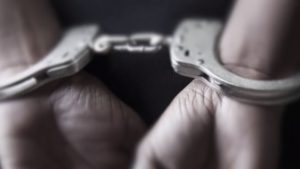HAIFA, State of Israel. Hundreds of activists and Ethiopian Israelis took to the streets of Haifa Tuesday night to protest police brutality and discrimination, in the largest demonstration on the issue since a rally in Tel Aviv last week devolved into a chaotic and violent street battle that left 65 people injured.
According to a police spokeswoman, the protesters in Haifa passed peacefully under the watch of dozens of officers deployed to the northern city to prevent a repeat of last week’s violence.
Media reports estimated the crowd at several hundred.
Ethiopian Israelis have staged several rallies against alleged police brutality and racism in recent weeks following the publication of a video showing police beating an Israeli man of Ethiopian descent.
One protester in Haifa interviewed by public television said Tuesday’s demonstration was “intended to ensure that members of our community aren’t judged solely on the color of their skin by Israeli society.”
Others held signs that read “Black or white, we are all human beings.”
Earlier on Tuesday, the Knesset held a special session to address the discrimination against the Ethiopian Israeli community.
Participating in the discussion were the leaders of the protest movement who said that while the trigger for the ongoing demonstrations was the videotaped attack, many were brought to the streets by the pervasive racism and discrimination resulting from their systematic segregation from general Israeli society.
“The authorities’ treatment of people with different skin color needs to be put on the table and discussed,” Zionist Union leader Issac Herzog said according to a report in Ynet.
“Recent events are a dramatic wake-up call for all of the citizens of Israel,” Herzog said during the discussion.
Pnina Tamano-Shata, a former Knesset member and the first Ethiopian-born woman to serve in the parliament, said that the systematic racism against the Ethiopian-Israeli community was long-neglected and wouldn’t have come to the public’s attention if it hadn’t been for the recent wave of protests.
Joint (Arab) List MK Dov Khenin, who initiated the session, said that institutionalized racism against the Ethiopian-Israeli community was at the root of the unrest.
“Racism is a disease that affects many communities within Israeli society, and threatens us all,” he said.
The Knesset hearing came two days after the leaders of the protest movement demanded the government improve education and housing, and set up ministerial committees to address the needs of the Ethiopian-Israeli community.
The activists said that in addition to the national government, local authorities were also responsible for the systematic discrimination their community faced.
In a bid to ease tensions with the Ethiopian Israeli community, Prime Minister Benjamin Netanyahu met with leaders of the community earlier this month and pledged his commitment to eradicating racism, discrimination and police brutality in Israel.
Netanyahu’s office said the prime minister would have a plan drawn up to battle racism, and an ad-hoc committee would be created to monitor its implementation.
Israel is home to some 135,500 Israelis of Ethiopian descent, including more than 50,000 born inside the country.
Credit: The Times of Israel




